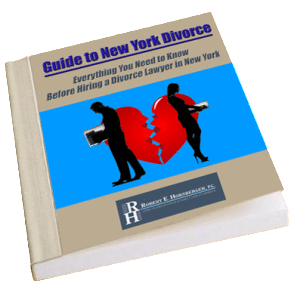As we enter the Long Island wedding season, many soon-to-be spouses are finishing up the details and planning of their upcoming nuptials. As an experienced Family Law Attorney, one often overlooked detail I often see is that of the prenuptial agreement, which can be an essential component of the wedding plan.
Prenuptial Agreements May Not Be for Everyone
It should first be said that I don’t believe prenups are for everyone. Although you and your soon-to-be spouse should be able to openly discuss things like finances, you may not have significant assets or children yet, and you may not be sure what you would even like your prenuptial agreement to say. In many cases, you at least should be able to have this conversation with your future spouse before you are legally married.
When Is a Prenuptial Agreement Right for You?
In other situations, where there are assets such as retirement accounts, businesses, and/or real properties involved, or where one or both of you have children that you are bringing into the marriage, you would be wise to consider a prenuptial agreement. Without having an agreement in place, New York law might determine how your property is divided if you divorce. This could mean that your spouse will get more of your property than you thought he or she would, or more than you think is fair. A prenuptial agreement can prevent surprises down the road when it comes to property division.
Don’t Let the State Decide Who Gets What
For example, the law in New York makes a distinction between “marital property” and “separate property” when determining who gets what in a divorce in Nassau County or Suffolk County. Marital property is any property that you or your spouse acquire during the marriage, with an exception for gifts or inheritances given specifically to one person. Any other earnings, appreciation or acquisitions become marital property, which, in New York, is ripe for division between spouses. This means that even if you earn a high income and your spouse does not earn any money at all, he or she would likely be entitled to half of the assets that you accumulate during your marriage. If this concerns you, a prenuptial agreement can help. The agreement can address what will happen to property acquired during your marriage, and can identify certain assets that you are entitled to if you divorce.
Don’t Forget Spousal Support
Your prenuptial agreement can also address the question of spousal support — who pays who after divorce, and how much. You can decide that both parties waive spousal support at the conclusion of the marriage, meaning that neither party has to make payments. You could instead set a specific amount that will be paid, which can be based on the length of the marriage, the assets owned by one or both spouses at the time, or another formula. Finally, you can choose to waive spousal support in your prenuptial agreement with a caveat for spousal support in the event one spouse stopped working to care for your children.
Who Gets the House?
Because many couples combine their assets in order to purchase their first home or other real property, a prenuptial agreement can address how that real property is divided at the time of your divorce. A home purchased during the marriage is of course considered marital property and is subject to equitable distribution. The prenuptial agreement can make it clear that spouses get their portion of the down payment back at divorce as well as their contributions to paying the mortgage and for upkeep of the house. The prenuptial agreement can also address whether the appreciation of the house will be divided equally or according to the contributions toward the equity in the house. The agreement can also cover whether one spouse will be entitled to keep the house and “buy out” the other spouse if necessary,
Address Issues Now, Before Marriage
A prenuptial agreement is the perfect way to avoid having a judge make all of these decisions for you if your marriage ends. While it may be unpleasant to address these issues amid the excitement of wedding planning during your engagement, it is often best to talk about these issues up front and have a clear agreement to avoid complications and distress down the road in the event of divorce.
Your Prenuptial Agreement is Unique to Your Situation
A prenuptial agreement is uniquely tailored to your future marriage, and can be structured to reflect what is important to you and your future spouse. And, if you are already married, it is not too late. You can similarly make a postnuptial agreement that accomplishes the same goals and objectives as the prenuptial agreement. A qualified Long Island matrimonial law attorney can walk you through all of the issues and potential pitfalls so that you can make sure the postnuptial agreement protects both of you.
Contact an Experienced Long Island Family Law Attorney with Prenuptial Agreement Questions
If you have questions about a prenuptial or postnuptial agreement, contact the Family Law Office of Hornberger Verbitsky, P.C. at 631-923-1910 to schedule your free initial consultations. Our experienced attorneys would be happy to answer your questions and assist you.
For more information about Prenuptial and Postnuptial Agreements, please read Your Guide to Long Island Prenuptial & Postnuptial Agreements

Download Your Free New York Divorce Guide
Our 41-page “Guide to New York Divorce: What You Need to Know Before Hiring a Divorce Lawyer in New York” written by an experienced family law lawyer, Long Island’s Robert E. Hornberger, Esq., provides you with real information on the divorce process and the laws it rests upon in the state of New York. This book will help give you a solid foundation upon which you can begin the process of making your family’s, life better.















